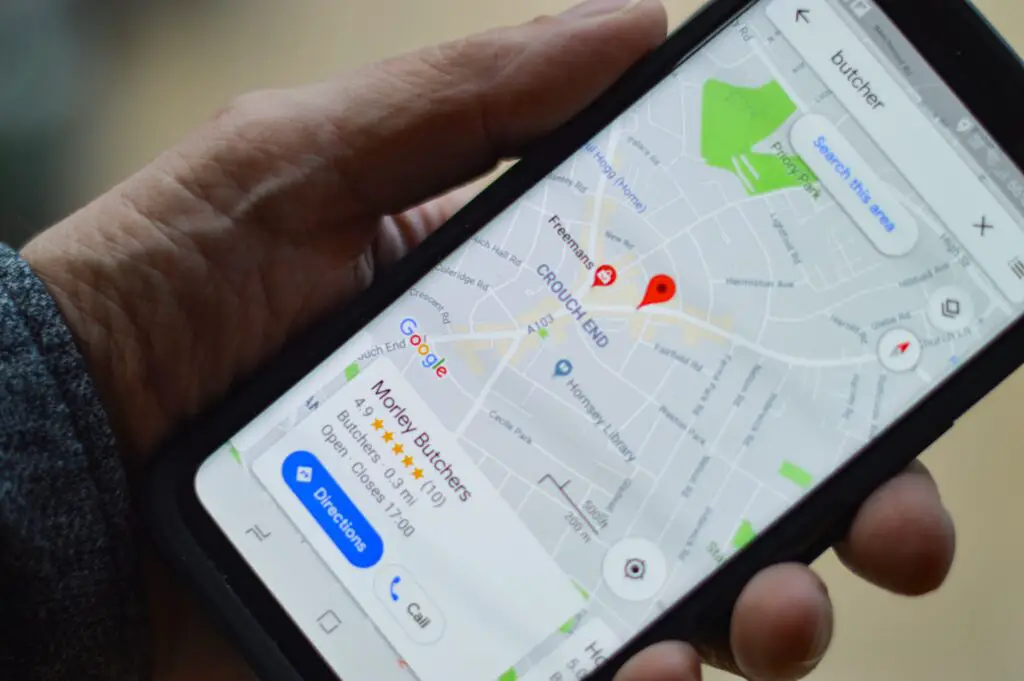Suppose you’re planning on catering to an audience from a specific place, or your shop is situated in one location. In that case, you will benefit a lot from local SEO strategies. To help you, here are eight local SEO strategies that could help you grow your business by taking advantage of your locality.

Understanding local SEO
Before we cover some local SEO strategies that you can apply to your business, we should discuss what local SEO is precisely.
Local SEO is a search engine optimization strategy that helps you optimize your website for a specific locality. You would have a target location in mind and aim to be most discoverable for relevant keywords relating to that locality.
This strategy is most effective if you have a physical shop location or are servicing people from a specific place.
A simple example of this would be if you’re interested in getting burgers. You’d look up something similar to “burgers near me,” and the results show burger places in your area. That’s an example of how local SEO works.
Your goal with local SEO is to show up for these specific, localized terms like the ones in the example.
Now that you know what local SEO is, let’s start covering some local SEO services strategies you can apply to your business.
1. Claim and optimize your Google Business Profile
The first and one of the most common advice that someone would receive when optimizing for local SEO would be to create a Google Business Profile or GBP. It’s a simple setup, but it makes it easier to ensure your business looks optimized and high quality if you show up on Google results.
You wouldn’t want to show up on Google’s search results finally for a local keyword only for information that doesn’t fit your business, is inaccurate, or represents your business inaccurately to appear.
The thing about GBP is that it will require you to go through a verification process since Google wants to ensure you are a legitimate business. That could take a few days, but you should be ready once verified.
Your GBP’s vital part is ensuring that your contact information is accurate. If a customer wants to contact you, you must ensure that the details remain current. Otherwise, you could miss out on potential customers.
2. Encourage and address customer reviews
Once you have a GBP account set up, you should wait until you’ve got a few reviews on there. Or, better yet, instead of waiting for customers to put in reviews organically, you can directly reach out to your customers to put in reviews, maybe for an incentive, too.
Those reviews will encourage other potential customers to try your business since you’ve got reviews. Sometimes, just the presence of legitimate reviews can be why a person would try your business.
Please respond to these customer reviews so that it can get more eyes on it, especially when a customer has a slightly negative review. But don’t forget to thank those who also left a positive review.
3. Find locally relevant keywords
If you have a website, consider targeting relevant local keywords as they will help your website rank high for search engine results pages of this particular keyword. Just make sure to do your keyword research before doing so.
You can hire an SEO agency to help with keyword research if you don’t know how. That way, you can target the right keywords without picking high-volume traffic with huge competition.
Understanding your target audience will make it easier for you to figure out which keywords are most relevant to your needs. Usually, these keywords include some specific place, for example, the city’s name or locality.
4. Implement schema markups on your website
Schema markup is a form of structured data that communicates to search engines the purpose of your website, what its elements are about, and how search engines should serve it to search engine users.
An excellent example would be if you Googled any recipe right now. Let’s say you searched for a pizza recipe.
You’ll see a special section marked recipes with different recipes for a pizza that have their own thumbnail image, title, user ratings, and a brief list of some of the ingredients. These websites most likely have structured data or a schema markup.
When you implement schema markups for your web pages, you can get richer search results that stand out from the rest of the search engine results.
5. Optimize online directories and citations
We’ve mentioned Google Business and how you should create your profile. But it is also a great idea to have a presence in some of the more popular online directories, maps, and citations or review sites whenever possible.
Here are some examples of online directories that you should consider creating accounts on:
- Yelp
- Trip Advisor
- Foursquare
- Google Maps
Ensure that you are consistent across all these profiles regarding your contact details, business name, business address, and other relevant information. Otherwise, search engines might find these inconsistencies suspicious and won’t show your business on search results.
If you find some duplicate accounts or listings there, remove those to avoid those inconsistencies.
6. Add location pages to your website
A location page on your website will be helpful for businesses with more than one branch or location. Of course, this only applies to companies with brick-and-mortar locations, not businesses that provide services to specific people in a particular locality.
Your Location pages should include all of the different branches that your shops are in. They should also have opening hours and days of operation.
Sometimes, you can embed a Google Map pin to your website to indicate precisely where these locations are.
7. Create and share localized content
The content of your website is one of the ranking factors for SEO, so you should be mindful of the kind of content you have on your site. If your business or your website relies on its location, then creating localized content will be crucial and helpful to ranking high on your search engine results pages or SERPs.
Maybe there would be local holidays when you’d serve some discounts to commemorate. Then, post that, as that will be relevant to your local audience. That’s one example of localized content you can make.
8. Conduct local link building
Backlinking’s importance to your SEO strategy can’t be understated, as it’s part of how search engines understand whether your website is relevant and valuable to its users. With that in mind, getting links to your website from local publications, like a news site or other relevant websites, is a good idea.
That way, you can get better domain authority for your locality and pop up more for local keywords.
Conclusion
These SEO strategies can help you improve your local SEO search results for your website. That way, you can thrive better and target your local audience more specifically through your SEO strategy. So, if you’re a local business, consider applying these local SEO strategies for these benefits.









0 Comments